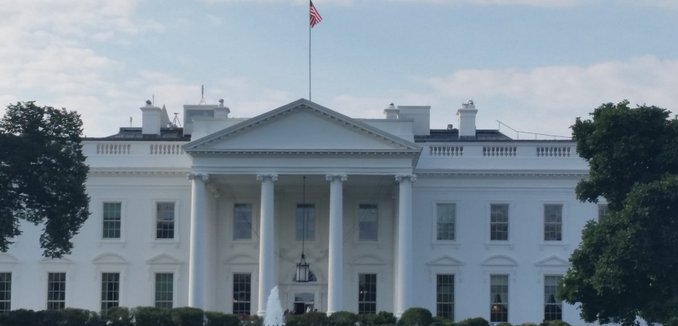The U.S. Treasury Department’s recent decision to loosen banking restrictions on Iran has come under criticism from members of Congress and former Treasury officials, The Wall Street Journal reported Monday.
Last Friday, the Treasury updated its guidelines by loosening restrictions on foreign investments in Iran, including allowing Iran access to American dollars. In another change, the Treasury may choose not to punish foreign companies that partner with blacklisted Iranian businesses, provided that those business are only minority-owned by sanctioned entities. “It is not necessarily sanctionable for a non-U.S. person to engage in transactions with an entity that is not on the [Sanctions] List but that is minority owned, or that is controlled in whole or in part, by an Iranian or Iran-related person on the [Sanctions] List,” the new guidelines states.
Another update allows Iran to conduct transactions in dollars that it acquires from foreign banks, even though, as the Journal observed, “U.S. law bans Iranian banks and companies from conducting business through the American financial system.”
Several lawmakers pointed out that the new clarifications violated long-held American policies.
“The new guidance overturns the long-running understanding that the U.S. dollar cannot be used to facilitate international trade with any Iranian entities, let alone sanctioned entities,” Sen. Tom Cotton (R – Ark.) said on Sunday. “And by allowing foreign subsidiaries of U.S. companies to transact business with Iranian entities, the president is ignoring the clear text of a law passed by Congress.”
The updates made by Treasury “green-light business with terrorists. The updated [guidelines] remove barriers for foreigners to engage with firms the Islamic Revolutionary Guard Corps controls,” added Rep. Mike Pompeo (R – Kan.).
A Treasury spokesperson defended the changes as being “intended to clarify the scope of sanctions lifting under the [nuclear deal] and the sanctions that remain in place, and does not represent additional sanctions relief.” But Juan Zarate, a senior Treasury and White House official in the George W. Bush administration, said that the changes would further undercut Washington’s ability to apply financial on Tehran.
“The administration seems to be doing everything possible—from roadshows to new interpretations of regulations—to encourage business with Iran,” Zarate said to the Journal. “At a time of growing concern about Iran’s adventurism, support to terrorism, and clerical and IRGC control of the economy, this seems to be a moment for the U.S. and the world to be applying even more scrutiny—not less.
Stuart Levey, former Treasury undersecretary for terrorism and financial intelligence in both the Bush and Obama administrations, said last week that businesses remain hesitant to do business with Iran because of the risks it poses due to its terror support and money laundering. “What you’ve seen more broadly…is the sanctions get lifted, [but] the major international financial institutions will still resist doing business until the underlying facts change,” said Levey, now the chief legal officer of the banking giant HSBC.
Levey similarly observed in a Wall Street Journal op-ed in May that Secretary of State John Kerry’s active encouragement of European banks to do business with Iran was odd, considering that Iran was still engaged in the same illicit behavior that subjected it to financial sanctions in the first place.
In June, Sen. Chris Coons (D – Del.), who supported last year’s nuclear deal, questioned why the administration was pushing so hard to boost business with Tehran. “It is Iran’s challenge to demonstrate that their economy is transparent enough, legitimate enough, secure enough, to attract foreign investment,” he said. “I don’t think it’s our job to act as the chamber of commerce for Tehran.”
Ali Akbar Velayati, a senior adviser to Iranian Supreme Leader Ayatollah Ali Khamenei, said last month that Iran should not join the Financial Action Task Force (FATF), a global watchdog against money laundering, because it would bar Iran from financing terrorism. In Velayati’s words, joining the FATF would “impose unfair restrictions on officials of the Islamic Republic of Iran,” because it would prevent them from backing groups involved in the “campaign against Zionism and its supporters.” He specifically mentioned Hezbollah, which the U.S. has designated as a terrorist organization since 1997.
The FATF temporarily removed Iran in June from its blacklist of countries that use their financial institutions to support terrorism, though the Basel Institute on Governance ranked the Iranian financial system as the world’s biggest money-laundering risk a month later. Many Iranian banks are still subject to American, European, and global sanctions due to their financing of terrorism.
[Photo: soccerdhg / Flickr ]




